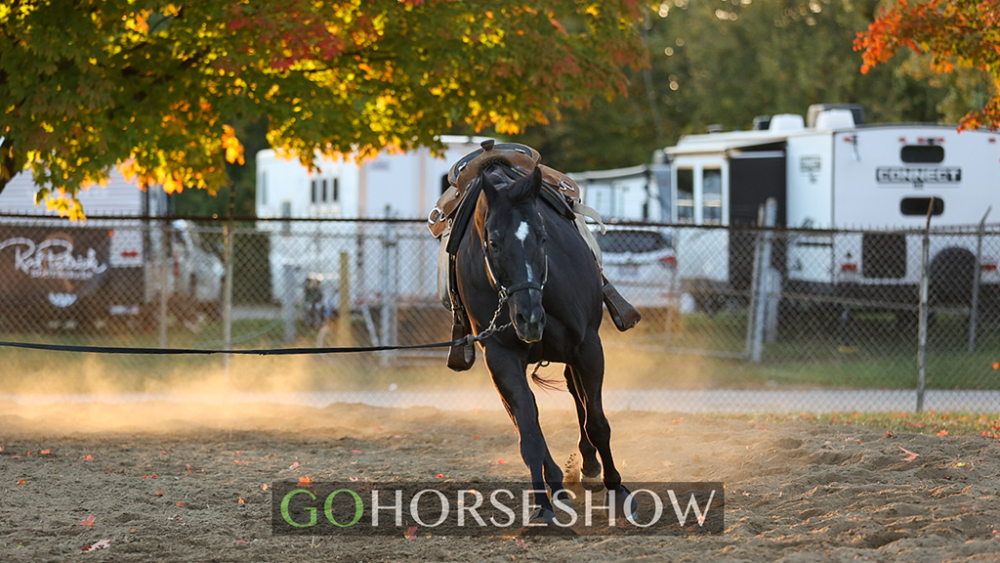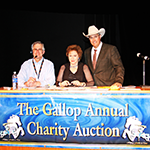We asked several trainers for their insight into some quirks, vices, and potential problems to watch out for when buying a horse. Do they have automatic deal breakers that will cause them to cross a horse off their list?
Some of the most legendary horses in our industry had quirks – they cribbed, didn’t like loud noises, had to have their ears plugged, wouldn’t walk under overhangs, didn’t like being tied, didn’t x-ray well – the list goes on and on.
Most of the time, we overlook some challenges because their talent supersedes their eccentricities. The choice of buying a horse is dependent on many factors, such as the level of rider, price, safety, and talent.
Let’s find out what the trainers had to say.
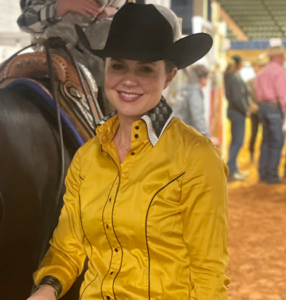 Jamie Dowdy – This is a tough question. Everybody has their quirky line, more or less. All horses are individuals. I tend to like to find out how to address a horse and its nervous habits because most of the unattractive traits involve anxiety, such as kicking, pawing, weaving, and cribbing. Sometimes you overlook such tendencies because that particular individual has met your other criteria. I have more issues with structural issues. Feet, in particular. I want strong wheels, but again, right horse for the right person. We make concessions for the consumer depending on their criteria. A lot of the time, it boils down to budget, but it could also depend on the age of the horse and/or rider.
Jamie Dowdy – This is a tough question. Everybody has their quirky line, more or less. All horses are individuals. I tend to like to find out how to address a horse and its nervous habits because most of the unattractive traits involve anxiety, such as kicking, pawing, weaving, and cribbing. Sometimes you overlook such tendencies because that particular individual has met your other criteria. I have more issues with structural issues. Feet, in particular. I want strong wheels, but again, right horse for the right person. We make concessions for the consumer depending on their criteria. A lot of the time, it boils down to budget, but it could also depend on the age of the horse and/or rider.
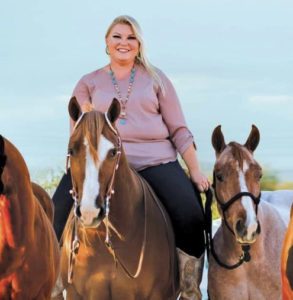 Erica Owen – I think it depends on who or what the horse is for. If it’s for me to keep in training and show, I can overlook a lot of idiosyncrasies because I know how to manage them. If the horse is for resale, or for an inexperienced amateur or youth that could potentially be taken home at some point, having a horse with quirks or vices is probably not a good idea. When purchasing a horse, if we get as far as a PPE, I am fine with maintaining most joint issues, but a young horse (2-3 years) with significant signs of navicular or large OCDs are a big no for me. I will also not entertain buying any horses that carry certain genetic diseases (HYPP, PSSM, or IMM – to name a few), regardless if they’re “non-symptomatic”.
Erica Owen – I think it depends on who or what the horse is for. If it’s for me to keep in training and show, I can overlook a lot of idiosyncrasies because I know how to manage them. If the horse is for resale, or for an inexperienced amateur or youth that could potentially be taken home at some point, having a horse with quirks or vices is probably not a good idea. When purchasing a horse, if we get as far as a PPE, I am fine with maintaining most joint issues, but a young horse (2-3 years) with significant signs of navicular or large OCDs are a big no for me. I will also not entertain buying any horses that carry certain genetic diseases (HYPP, PSSM, or IMM – to name a few), regardless if they’re “non-symptomatic”.
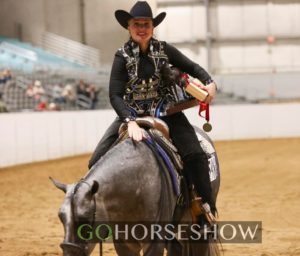 Katy Jo Zuidema – If it’s a yearling in the pasture, I watch its first step when it lopes off and its last step when it breaks out of a lope. It can’t scramble or struggle at all. If it’s a green prospect, I want it to be square-made, land on its heels behind, and have a ton of rhythm. It has to jog. Needs to be pretty.
Katy Jo Zuidema – If it’s a yearling in the pasture, I watch its first step when it lopes off and its last step when it breaks out of a lope. It can’t scramble or struggle at all. If it’s a green prospect, I want it to be square-made, land on its heels behind, and have a ton of rhythm. It has to jog. Needs to be pretty.
 Julian Harris – Cribbing and weaving. And the more you ride it, the worse it gets.
Julian Harris – Cribbing and weaving. And the more you ride it, the worse it gets.
 Farley McLendon – Conformation! First and foremost, above any quirks. Every good-to-great horse I’ve had has possessed some quirk. I will stay away from one that bolts or is a random bronc. If I feel it’s not safe or won’t be safe for owners, I stay away from those as well.
Farley McLendon – Conformation! First and foremost, above any quirks. Every good-to-great horse I’ve had has possessed some quirk. I will stay away from one that bolts or is a random bronc. If I feel it’s not safe or won’t be safe for owners, I stay away from those as well.
 Kelly McDowall – Bad haulers are really the only thing I really stay away from. It’s too dangerous for them and the other horses when they don’t haul well.
Kelly McDowall – Bad haulers are really the only thing I really stay away from. It’s too dangerous for them and the other horses when they don’t haul well.
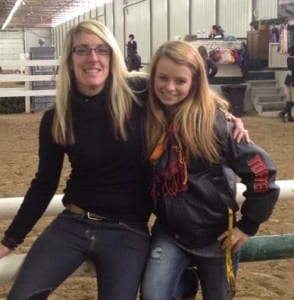 Jennifer Welhouse – Cribbing collar marks, odd scars, horse looks drugged, owner/trainer won’t ride it for you; they want you to get on. Rearing is an automatic dealbreaker, too dangerous. Any kind of limp, grinding teeth, or aggressive, like biting or spinning their hindquarters at you. Some habits cannot be broken, and as a trainer, you have to decide what’s worth it to deal with. We had a beautiful horse in for fence training. He was a total gentleman the first week. Then, he became so dangerous. I had never seen a horse turn like that and actually be scary. I called the owners and had him shipped home immediately. Always remember, you could be also putting yourself and your customer in danger if you are not careful.
Jennifer Welhouse – Cribbing collar marks, odd scars, horse looks drugged, owner/trainer won’t ride it for you; they want you to get on. Rearing is an automatic dealbreaker, too dangerous. Any kind of limp, grinding teeth, or aggressive, like biting or spinning their hindquarters at you. Some habits cannot be broken, and as a trainer, you have to decide what’s worth it to deal with. We had a beautiful horse in for fence training. He was a total gentleman the first week. Then, he became so dangerous. I had never seen a horse turn like that and actually be scary. I called the owners and had him shipped home immediately. Always remember, you could be also putting yourself and your customer in danger if you are not careful.
 Blake Carney – I think it’s easy to get caught up in the hype. With social media, you see a lot of people interested in horses, and it makes you think, “should I get in on this?” And then, once you look at the video, you need to make sure it suits your client. You can buy the best mover in the country, but it doesn’t matter if your buyer can’t get along with it. I think it’s important to talk with the seller and try to have them be upfront and honest with you. I always ask sellers to tell me what a normal day with the horse is like. If it takes 30 minutes to longe it every day, just tell me. If it needs to be twitched to clip, just tell me, etc. A wise, now-retired, trainer once told me to make sure I don’t assume things will happen. Maybe they won’t grow, so you better like their height when you go see them. Don’t think, “I think I can make it go better than that,” because maybe you can’t. You need to like it that day because maybe that’s all it can be.
Blake Carney – I think it’s easy to get caught up in the hype. With social media, you see a lot of people interested in horses, and it makes you think, “should I get in on this?” And then, once you look at the video, you need to make sure it suits your client. You can buy the best mover in the country, but it doesn’t matter if your buyer can’t get along with it. I think it’s important to talk with the seller and try to have them be upfront and honest with you. I always ask sellers to tell me what a normal day with the horse is like. If it takes 30 minutes to longe it every day, just tell me. If it needs to be twitched to clip, just tell me, etc. A wise, now-retired, trainer once told me to make sure I don’t assume things will happen. Maybe they won’t grow, so you better like their height when you go see them. Don’t think, “I think I can make it go better than that,” because maybe you can’t. You need to like it that day because maybe that’s all it can be.
 Anne Shafer – I think the most important thing when buying a horse is being able to spend a little time observing the horse in his stall, being saddled, longed, etc. I feel we have seen and dealt with a lot of different things over the years, and we can find ways to make a horse comfortable in our environment if we know upfront what we are dealing with. Vices that put the horse’s or owner/handler’s safety at risk are a definite no-go. Stall kickers and cold-backed horses fit into that category.
Anne Shafer – I think the most important thing when buying a horse is being able to spend a little time observing the horse in his stall, being saddled, longed, etc. I feel we have seen and dealt with a lot of different things over the years, and we can find ways to make a horse comfortable in our environment if we know upfront what we are dealing with. Vices that put the horse’s or owner/handler’s safety at risk are a definite no-go. Stall kickers and cold-backed horses fit into that category.
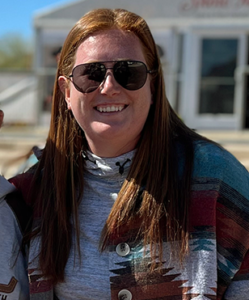 Chelsea Carlson – Not sure if I have any automatic deal breakers. The longer I’ve been in the industry, the more I’ve realized some of the great ones have quirks. But if there is something off, I consider that a red flag to consider. For habits/vices, I would say one that hauls badly is something I don’t love. Not only are they risking injury to themselves, but they are risking damaging a trailer and others in the trailer. That can be a really hard fix. Problems in the pen is another one. Getting nervous and/or smart in the pen is a habit you have to school a lot to get past. Makes for an unreliable partner. Lastly, If I’m buying something for a client whose X-rays are decent enough, but are showing up more unsound than your average maintenance should help, then that’s usually something I would walk away from. It’s always the horses that are inconsistently sore, but you can’t pinpoint where it is that gives me the most worry. Usually, something deeper is going on, and that’s going to involve a decent amount of money down the road.
Chelsea Carlson – Not sure if I have any automatic deal breakers. The longer I’ve been in the industry, the more I’ve realized some of the great ones have quirks. But if there is something off, I consider that a red flag to consider. For habits/vices, I would say one that hauls badly is something I don’t love. Not only are they risking injury to themselves, but they are risking damaging a trailer and others in the trailer. That can be a really hard fix. Problems in the pen is another one. Getting nervous and/or smart in the pen is a habit you have to school a lot to get past. Makes for an unreliable partner. Lastly, If I’m buying something for a client whose X-rays are decent enough, but are showing up more unsound than your average maintenance should help, then that’s usually something I would walk away from. It’s always the horses that are inconsistently sore, but you can’t pinpoint where it is that gives me the most worry. Usually, something deeper is going on, and that’s going to involve a decent amount of money down the road.
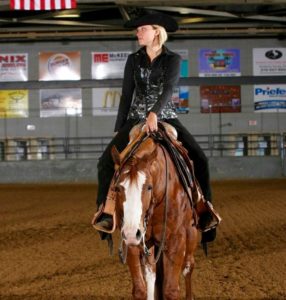 Ceralena Gray – We’ve had a lot of great horses with a weird quirk or two. As long as sellers are honest about it, we can typically be totally fine with it. There’s not much that would turn me away from a great one. Cribs, weaves, doesn’t clip, etc. Does it keep the horse happy? Then, we’re happy. What we’ve found is normally, the better the horse, the weirder the quirks. But always drug test regardless.
Ceralena Gray – We’ve had a lot of great horses with a weird quirk or two. As long as sellers are honest about it, we can typically be totally fine with it. There’s not much that would turn me away from a great one. Cribs, weaves, doesn’t clip, etc. Does it keep the horse happy? Then, we’re happy. What we’ve found is normally, the better the horse, the weirder the quirks. But always drug test regardless.
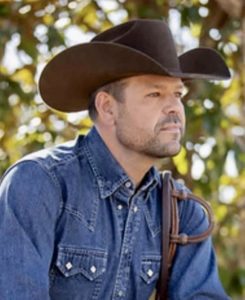 Jimmy Daurio – Some vices I have run into in the past are cribbers. I personally don’t hate a cribber, but there are a lot of people who do, and you really have to take that into consideration as far as resale goes. I have a group of trainers that I like to do business with. I feel that they are always honest about quirks, vices, and potential problems. A lot depends on who I am buying the horse for and the resale of that horse. I always want to take into consideration if this “quirk” or “vice” is something that will hurt the sale of said horse down the road.
Jimmy Daurio – Some vices I have run into in the past are cribbers. I personally don’t hate a cribber, but there are a lot of people who do, and you really have to take that into consideration as far as resale goes. I have a group of trainers that I like to do business with. I feel that they are always honest about quirks, vices, and potential problems. A lot depends on who I am buying the horse for and the resale of that horse. I always want to take into consideration if this “quirk” or “vice” is something that will hurt the sale of said horse down the road.
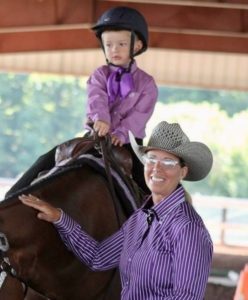 Dodie Howard – When buying a horse, I generally look long and hard about who I’m buying the horse for. How much experience do they have, what can they specifically deal with, and what they can’t? For example, if I have a client who lives to show the halter and specifically wants a mare. In that case, I’m not going to buy one with an overbite. But, if there’s a mare I love, and the people are never going to want to do the halter or possibly breed her, she may work for them. Another example is how sensitive the horse is. If they can handle a leg or not handle a leg, can they handle a quick reaction when someone gets nervous, etc? Some folks are quiet and can deal with sensitive, while others need a more forgiving one. Does it crib? Again no big deal, but it depends on the owner, and it also depends on how it’s managed. I like to know about any quirks as well. It could be something simple, but it’s nice to know what something may have. I’ve had lots of people buy their own horses, and they can pretty much cover all of their bases on what they need. I do like to be involved as well and always watch the videos and maybe offer up questions they may not think of.
Dodie Howard – When buying a horse, I generally look long and hard about who I’m buying the horse for. How much experience do they have, what can they specifically deal with, and what they can’t? For example, if I have a client who lives to show the halter and specifically wants a mare. In that case, I’m not going to buy one with an overbite. But, if there’s a mare I love, and the people are never going to want to do the halter or possibly breed her, she may work for them. Another example is how sensitive the horse is. If they can handle a leg or not handle a leg, can they handle a quick reaction when someone gets nervous, etc? Some folks are quiet and can deal with sensitive, while others need a more forgiving one. Does it crib? Again no big deal, but it depends on the owner, and it also depends on how it’s managed. I like to know about any quirks as well. It could be something simple, but it’s nice to know what something may have. I’ve had lots of people buy their own horses, and they can pretty much cover all of their bases on what they need. I do like to be involved as well and always watch the videos and maybe offer up questions they may not think of.
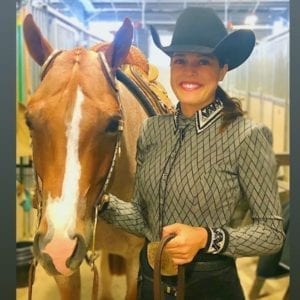 Alyssa Casa – I would stay away from fractious horses (on the ground or overly sensitive ones to your legs when riding) it’s a long process to get them over that, if they ever do.
Alyssa Casa – I would stay away from fractious horses (on the ground or overly sensitive ones to your legs when riding) it’s a long process to get them over that, if they ever do.
 Nicole Robosson – I feel every horse can find its person. I go into looking for a horse that will match my client’s needs the most. A lot of the time, the ones that catch your eye right off aren’t the ones that they need. If I feel like I have to work on something to make that horse work, I normally just keep looking. I shouldn’t have to talk myself or the client into the horse. I have mainly young youth kids and select riders. They don’t need something that I have to make into a horse for them. If they are the right fit, I can put up with the most quirks. I feel all horses have at least something, either a vice or maintenance, that can be unappealing to one person, but another can live with.
Nicole Robosson – I feel every horse can find its person. I go into looking for a horse that will match my client’s needs the most. A lot of the time, the ones that catch your eye right off aren’t the ones that they need. If I feel like I have to work on something to make that horse work, I normally just keep looking. I shouldn’t have to talk myself or the client into the horse. I have mainly young youth kids and select riders. They don’t need something that I have to make into a horse for them. If they are the right fit, I can put up with the most quirks. I feel all horses have at least something, either a vice or maintenance, that can be unappealing to one person, but another can live with.
Do you have an automatic deal breaker when buying a horse? Let us know.


